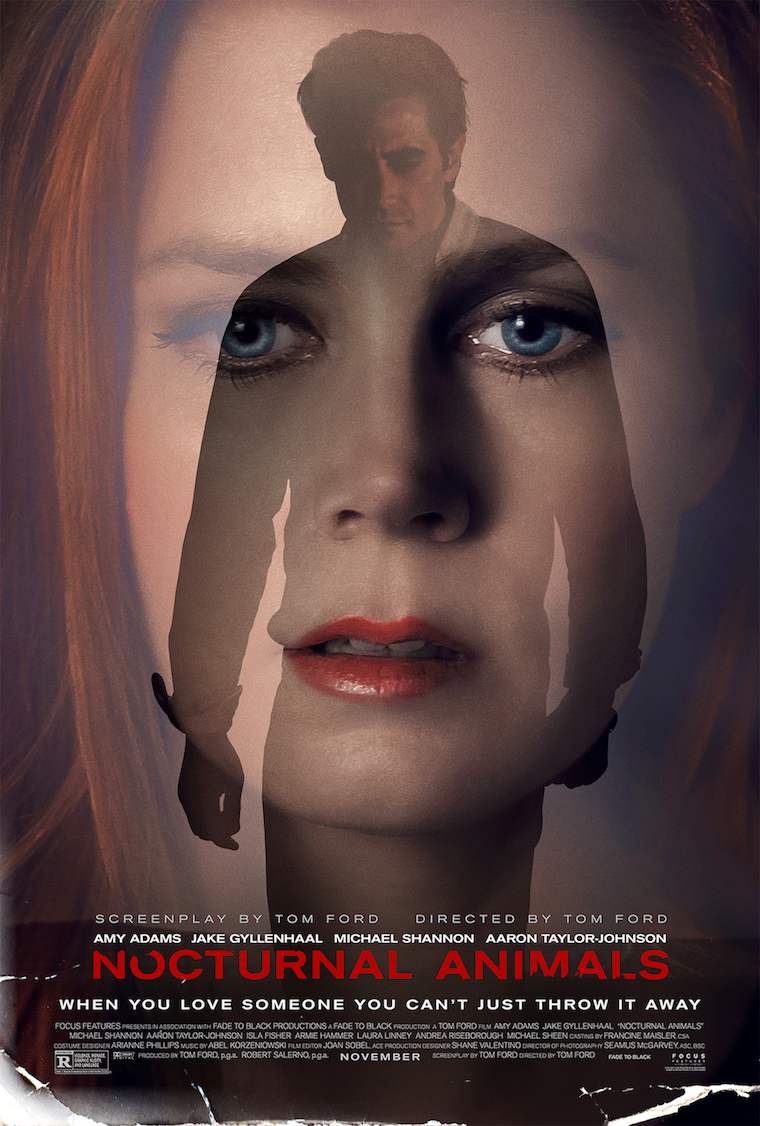Have you ever left a movie feeling like you want to cry and smile at the same time, and maybe die a little too? It’s not necessarily because you recognize yourself in any of the characters, but perhaps for the first time in your life you can admit to some regrets, and you no longer pretend you don’t have any. That’s how I felt when the stunning final scene of ‘Nocturnal Animals’ faded to black.
Directed by Tom Ford, this is not a film for everyone, even as I wish that everyone could experience it. Such beauty seems not long for this world, and though every frame is a work of art unto itself, the masses will never have the sense to embrace the multi-layered nuances and subtle styling of this mind-fuck of a film. That’s ok. Much like his Private Blends, Ford’s latest film is a potent dose of bittersweet beauty. It’s also a striking companion to his equally-riveting directorial debut, ‘A Single Man.’
‘Nocturnal Animals’ finds a successful art doyenne, Susan, looking back on her first marriage to Edward, as she receives a book written by him. The book plays out within the movie, featuring Jake Gyllenhaal as both Edward and Tony, the protagonist of the book. Amy Adams give deceptively soul-less life to the current-day Susan, instilling her tight-rope-tense character with just enough vulnerability to tease out a life of regret, while Gyllenhaal gives a raw, naked gut-wrenching performance in both of his roles.
The macabre tale-within-a-tale narrative is a brutal mirror of how Edward now views his relationship with Susan, and the violent acts within are barely tempered by the fact that this is a work of art and supposed fiction.
There is a bitter element of realizing that what we give up to get what we think we want is often something we may never get back. The relative notions of success are also imbued with ambivalence.
As much as some may covet Susan’s spectacular home and flawless wardrobe, it is clear there is little happiness in her life. While we never see the modern-day Edward, his presence is felt through Susan’s eyes. He is made thrillingly palpable, and all the more insidious, by the diabolically subtle way in which Ford reveals the almost sinister act of revenge by the betrayed.
It is the province and privilege of youth to display an absolutely-no-regrets mentality, a sense of owning everything you’ve done, and all the choices you’ve made. For most of my life, I’ve fallen into that trap. Ford’s film seems to give warning to that notion while also celebrating it, warping one woman’s regret into an emptiness that threatens to devour her.
Despite its somber tone and deliberate pace, and in the face of all of Ford’s gorgeous cinematic flair, this is a brutal film, one that examines our regrets, and the ways in which we deal with heartache and loss. By the time the devastating final scene plays out, the bleak totality of these characters, and the very modern carelessness we’ve come to embrace when it comes to love, washes over the cinematic landscape like a chilly desert morning. There is a stunning, barren, stark beauty here ~ the gorgeous and tragic realization that no matter how carefully we guard ourselves against the world, its pain is something no one escapes.
Back to Blog

